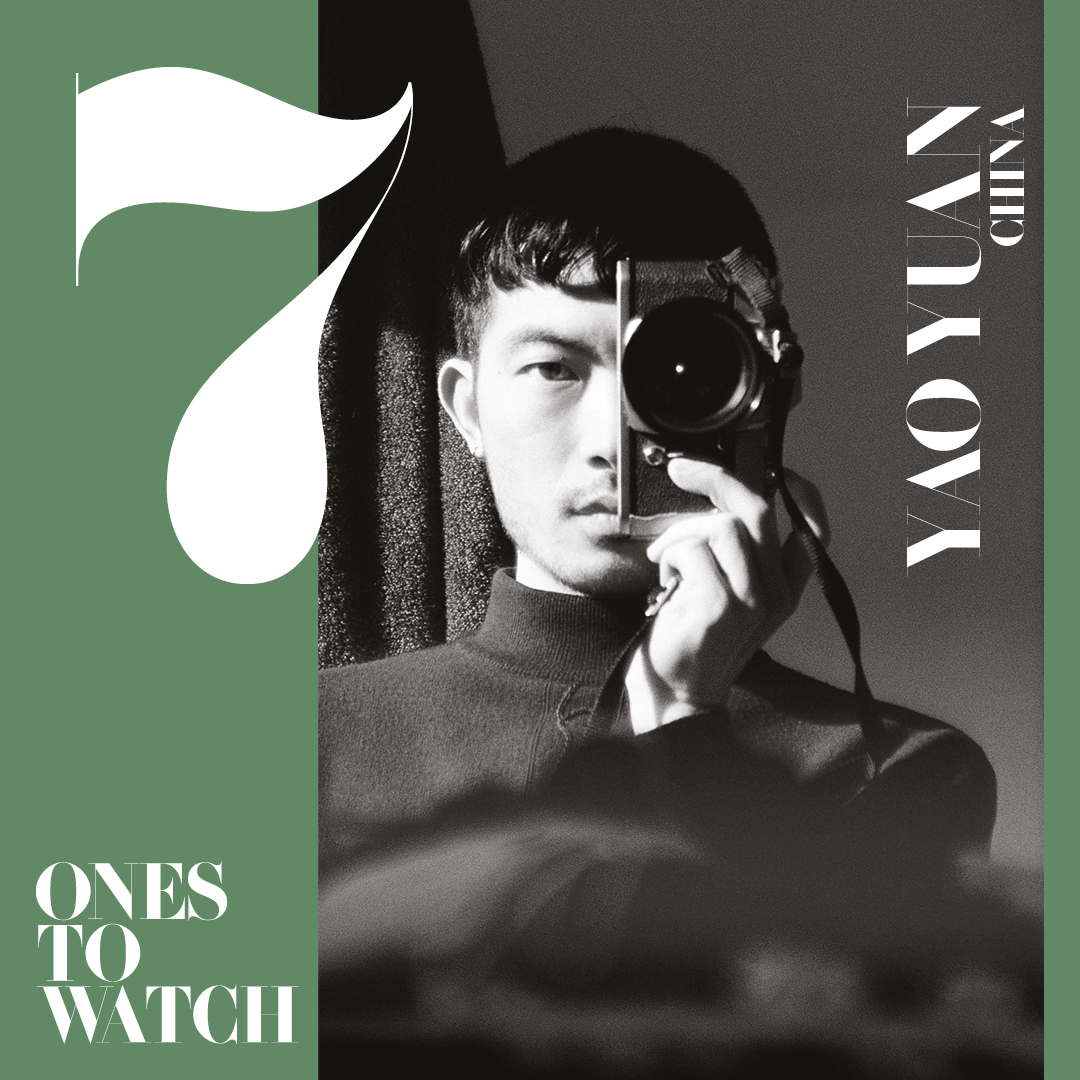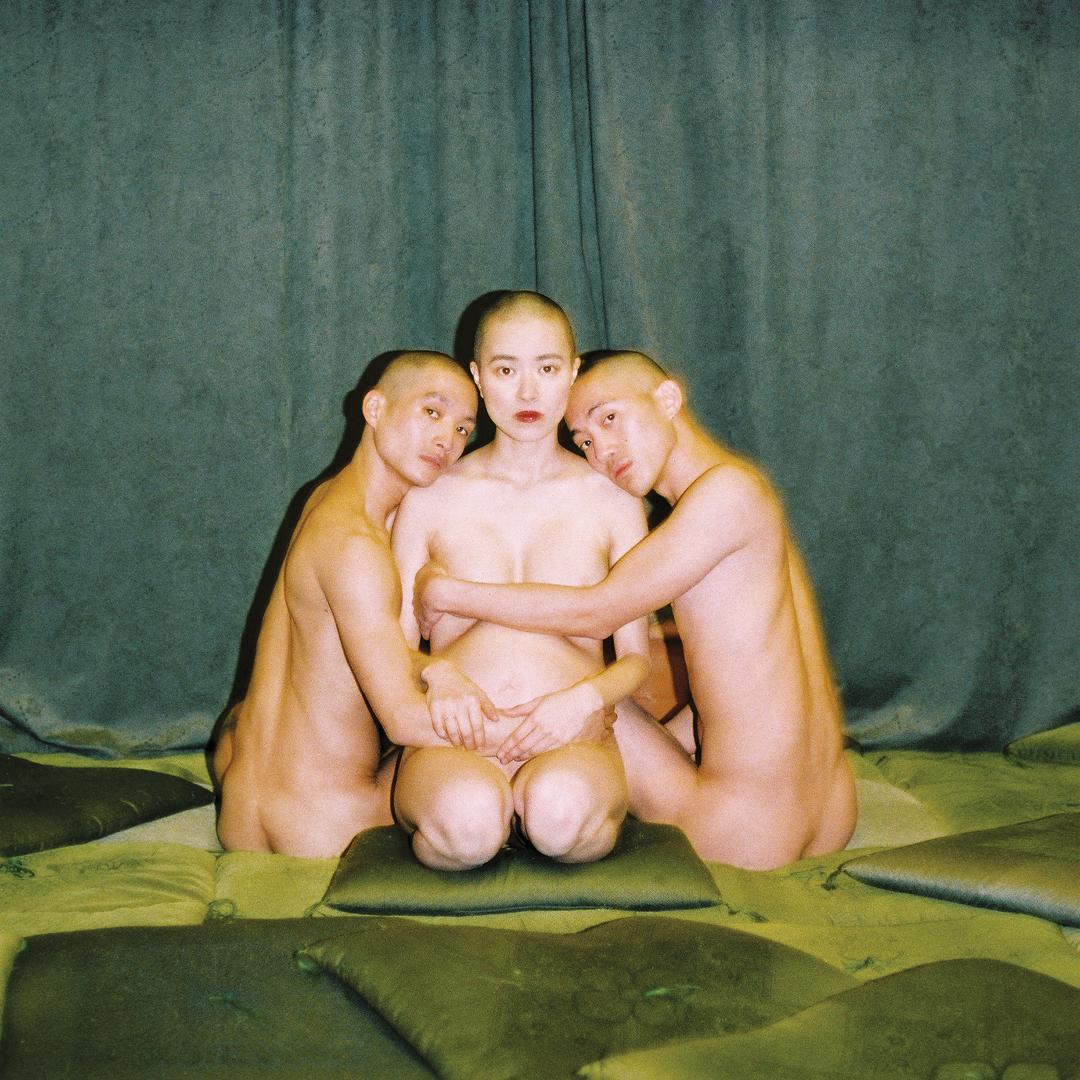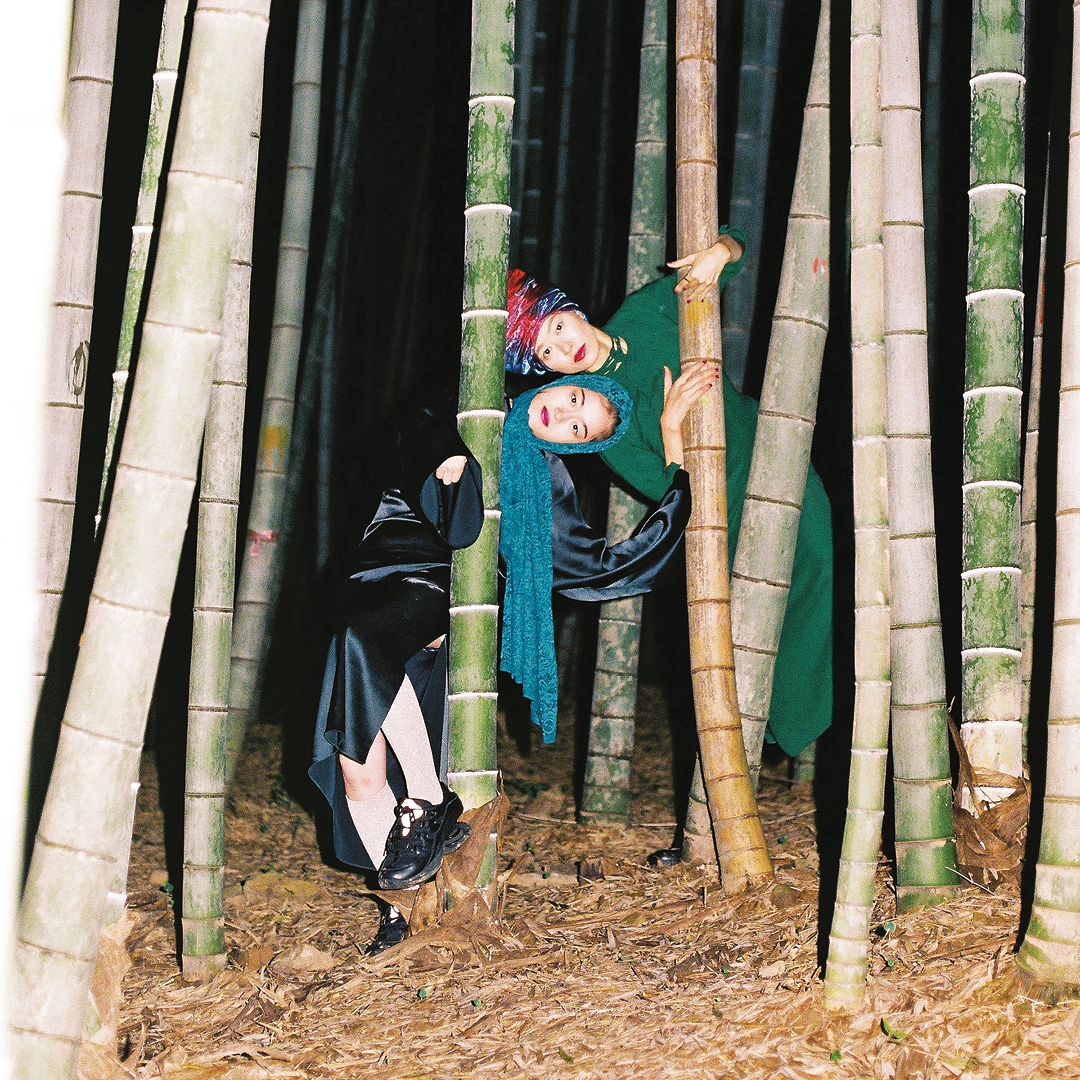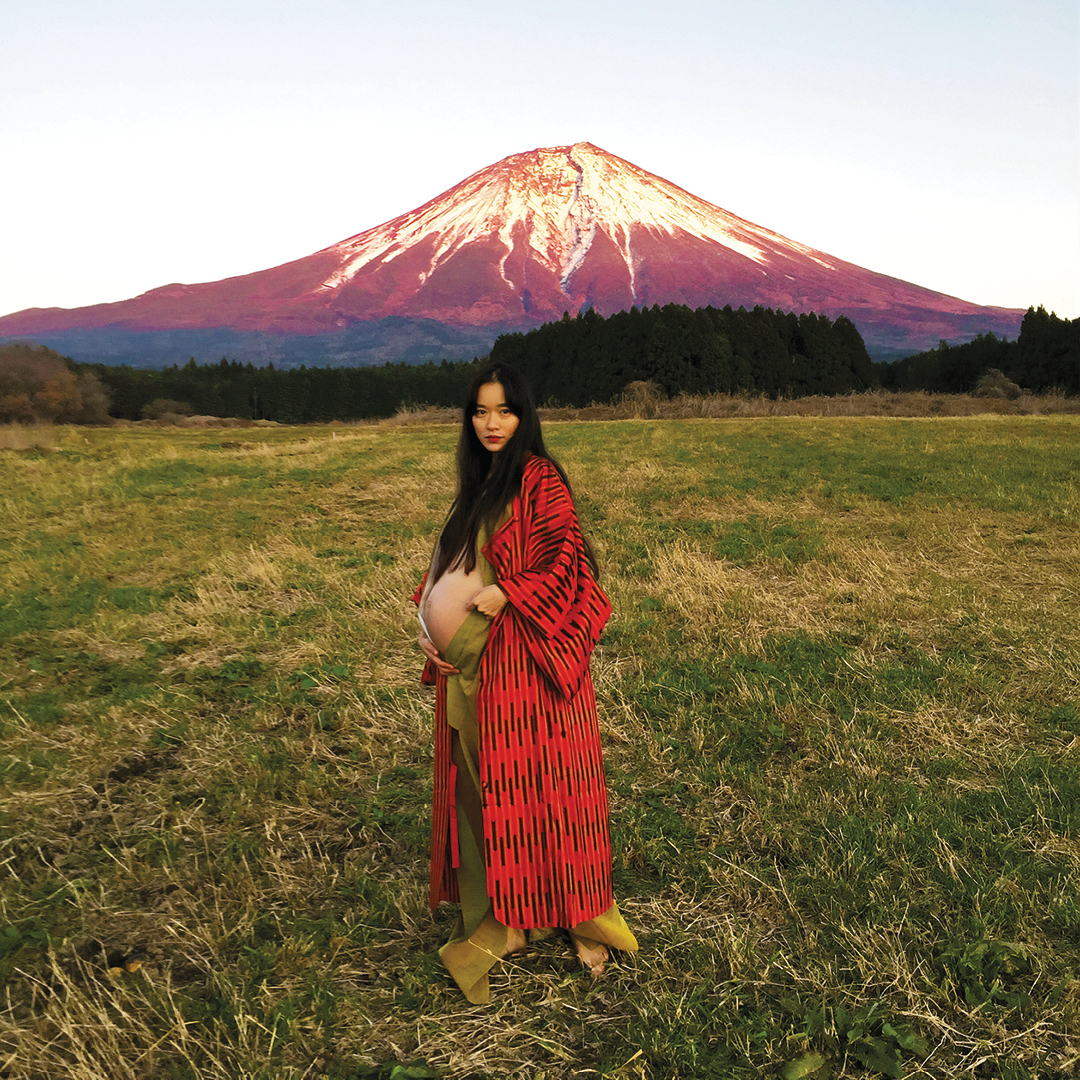All images © Yao Yuan
The Ones to Watch talent’s first project sees them apply ideas of harmony to a friend’s journey to motherhood
In Chinese Taoism, it is believed that all things, living or other, have a spirit. The intention of balance, harmony and interconnectedness lies at the heart of its religious and philosophical framework. An excerpt from Taoist scripture reads: “There is something born of chaos; Created before Heaven and Earth; Voiceless, Formless; It stands alone, unchanging; Ceaselessly circling; The Mother of Creation; I do not know its name.”
Yao Yuan, a Chinese non-binary photographer based in Antwerp, borrows these lines for the introduction to their recently self-published photobook, 12321. Taoism is a key foundation of their photographic practice, and indeed, general mental state. To create 12321, Yao collaborated with their friend Nagakura Nami on an intimate project about her pregnancy and journey to motherhood. It was shot between 2017 and 2019, when Yao lived in Japan, and is their first major photographic series. Set in the shadow of Mount Fuji, the project developed intuitively and intensely, mirroring the closeness of their relationship. A spiritual connection to nature and Nami’s goddess-like presence shine through the work in salient colour.

Editor, writer and curator Chiara Bardelli-Nonino nominated Yao for Ones to Watch this year. “Each image reads like a visual poem, exuding a quiet simplicity and an overall sense of an unidentifiable, oneiric spirituality that I find rare nowadays,” she says of 12321. “Looking at Yuan and Nami’s relationship unfolding is like peeking at something sacred and ancestral, like a strange form of prayer.” She adds: “Yuan considers the concept of unity, duality and trinity referenced by the title without ever being didactic; it is truly remarkable: the work explores the themes of identity, gender, ego, connectedness, of culture and how it shapes the world we live in, of the continued tension between nature and civilisation.”
Yao studied Japanese at Chengdu University, before moving to Tokyo in 2012 to study design. Despite no formal education in photography, they began to experiment with the camera as part of their practice. Early on, Yao felt restricted by the medium – the lack of technical training a palpable insecurity. Only recently have they embraced this as a facet of their personal style. “It’s a process of becoming more comfortable with approaching images as images,” Yao explains. “It doesn’t really matter how they were achieved technically.”
12321 marked an important moment in Yao’s life and practice – sharing awe-inspiring experiences with their friend, and learning how they want to visually express them. Yao has since left Japan and, after a brief stint back in China, moved to Belgium. In that time, their image-making, largely unconsciously, has become more introspective. Yao explains that they were not sure of who they were growing up, being almost in denial about their identity. Delving deeper into ideas of obscured identity – specifically the need for new narratives around queerness – now underpins their research. Their visual enquiries centre on why sexuality carries such weight and importance in today’s world.

“The work explores the themes of identity, gender, ego, connectedness, of culture and how it shapes the world we live in, of the continued tension between nature and civilisation”
Yao uses the camera to ask questions, creating images that begin as emotions or sensations: the aura of sunlight when it hits a coat on a hanger, the allure of a naked body swimming in clear water. The moments when one understands they are witnessing something profound – of mortality and humbleness when gazing at something otherworldly, like the moment a baby leaves the womb, or a luminous moon against a boundless sky. “I am interested in the indescribable, the unclear,” Yao says.
Going forward, Yao hopes to move towards fashion photography, as well as working on their archive for an upcoming personal project. An exhibition of 12321, selected as part of the Futures platform this year, opened at Fotomuseum in Antwerp on 23 June.


